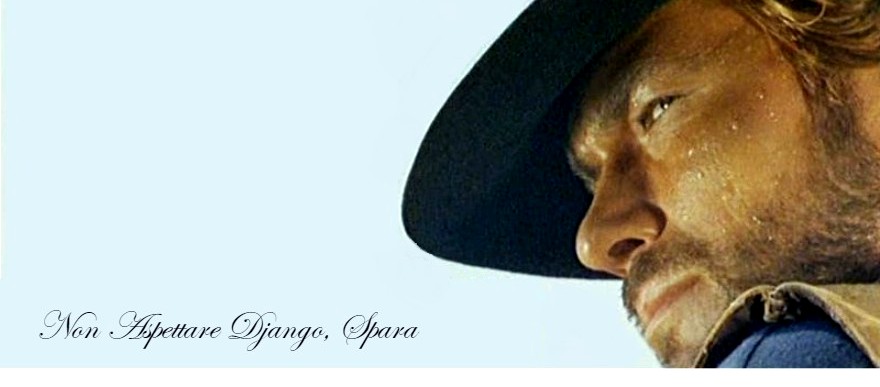Don't wait Django, shoot Review

Quickly made, shot on no more than a handful of locations, this is one of those low-low budget spaghetti westerns made by Edoardo Mulargia, the director of the grotesque El Puro, in association with Vincenzo Musolino, a former cult actor who wrote and produced a few westerns for Mulargia, before he directed a couple of his own. Non aspettare Django is not as outrageous as El Puro, but the choppy narrative style will bring Mulargia’s most infamous movie to mind.
In the opening scene the father of Mary and Django Foster is robbed and killed by a villain called Navarro. Shortly after, Navarro is duped by his own son, who flies to a border town. When Navarro arrives in town, his son is dead (and the money gone). Navarro is eager to kill every living soul, but he’s killed himself instead, not by the man who killed his son and robbed the money – a certain Gray – but by Django. Are you still there? Note that we’re only some 20 minutes into the movie: with the murder of the opening scene revenged at this stage, the film could have been a record breaking revenge movie. But it ain’t over yet. Gray tries to smuggle the money out of town with the help of his girlfriend Judy, but Barrica, a Mexican siding with Django, has read his plans. Gray is killed in a duel, but still our hero’s worries aren't over. Navarro worked for Don Alvarez, an old enemy of the Fosters, who has called for a notorious gunslinger called Hondo to get his money back. Hondo kidnaps Django's sister and sets a trap for him to settle all scores once and for all.


The first two thirds of the movie offer viewers a rapid succession of violent vignettes rather than a coherent story. There’s also a wide range of colourful characters, varying from the familiar old grave digger and the talkative Mexican side-kick to a drunkard who plays poker with himself, repeatedly accusing his imaginary opponent of cheating (he also hangs his coat on non-existing hooks). That’s all very nice, but it feels as if the script was written in one day and filmed on the next. It’s only when this notorious Hondo, played by writer/producer Vincenzo Musolino himself, enters the stage, the bits and pieces start falling into the right place. Like some of the other writings by Musolino, the script counts several melodramatic moments, with lovely Rada - Ivan Rassimov’s real-life sister - pleading and whining like the boy in Cjamango (Django! Django! instead of Cjamango! Cjamango!). Musolino was from Reggio Calabria, in the deep south, and according to Marco Giusti the screenplay borrows elements from popular and melodramatic folk stories from the region (*1).
Overall the action scenes are competently staged, but during the protracted (and otherwise well-conceived) finale there’s a particularly stupid intervention by Barrica, coming to the aid of Django, riding around in circles with his carriage, seemingly impenetrable to Hondo’s bullets. The film looks good, but is betrayed a little by its low low budget: the same camera angles are used over and over again, and at one point a few consecutive scenes are shot in broad daylight even though the actors are inside the parental home of the Fosters: the house clearly lacks a roof ! (A real foster house, so to speak). Felice Di Stefano’s score offers a nice collection of guitars, organs and trumpets, all twangy, wonky and weepy and very likable (especially the trumpet), even if none of his compositions are out of the ordinary. Non aspettare Django, spara is a middling effort, often clichéd, but good fun if you happen to like the genre.
Dir: Edoardo Mulargia - Cast: Ivan Rassimov, Pedro Sanchez, Rada Rassimov, Vincenzo Musolino, Celso Faria, Franco Pesce, César Ojinaga, Gino Buzzanca, Marisa Traversi, Ivan G. Scratuglia, Alfredo Rizzo, Armando Guarnieri, Dino Strano - Music: Felice Di Stefano
Note:
- 1) Marco Giusti, Dizionario del western all'italiana




